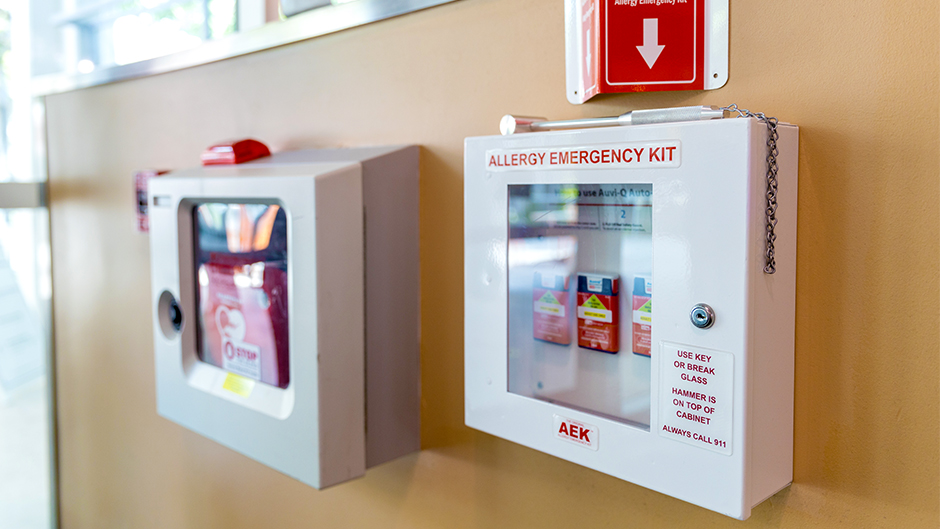Through a partnership between Student Government and Auxiliary Services, allergy auto-injector dispensers have been installed in six locations across the Coral Gables Campus. With a focus on food service and dining areas, the allergy auto-injectors have been placed where exposure to common allergens—such as peanuts, dairy, and bees—is greatest.
Anaphylaxis—a severe and life-threatening allergic reaction—can occur within minutes or even seconds of exposure to allergens and requires an injection of epinephrine, a substance found in allergy auto-injectors, including EpiPens. While University experts agree and advise students, faculty and staff members, and guests to always carry an EpiPen if they are susceptible to common allergens, the dispensers are available if circumstances arise.
“Initially, we had a lot of questions from a risk management perspective,” said Ana Alvarez, executive director for Auxiliary Services. “We did a lot of research with the Student Health Service team and met with individuals from other universities to understand their programs before launching our own.”
Each of the new allergy auto-injector cabinets, labeled ALLERGY EMERGENCY KIT, contains instructions and the location of the key, which is held at a designated cashier location or information desk, depending on the specific location.
“While we hope to not have to use the dispensers, staff from dining services and Student Affairs have been trained on how to use the device,” said Alvarez.
Allergy emergency kits are located at the following locations:
- Hecht-Stanford Dining Hall
- Hurricane Food Court (2 areas)
- Mahoney-Pearson Dining Hall
- The Rathskeller
- Whitten University Center lobby
Students and faculty and staff members are reminded to always carry their EpiPen if they are susceptible to debilitating allergic reactions. And upon experiencing symptoms, they must ask for help and seek immediate medical attention.
For more information about allergies, students should contact the Student Health Service at 305-284-9100. Faculty and staff members can reach out to the Employee Health Office at 305-243-3267.

